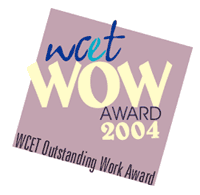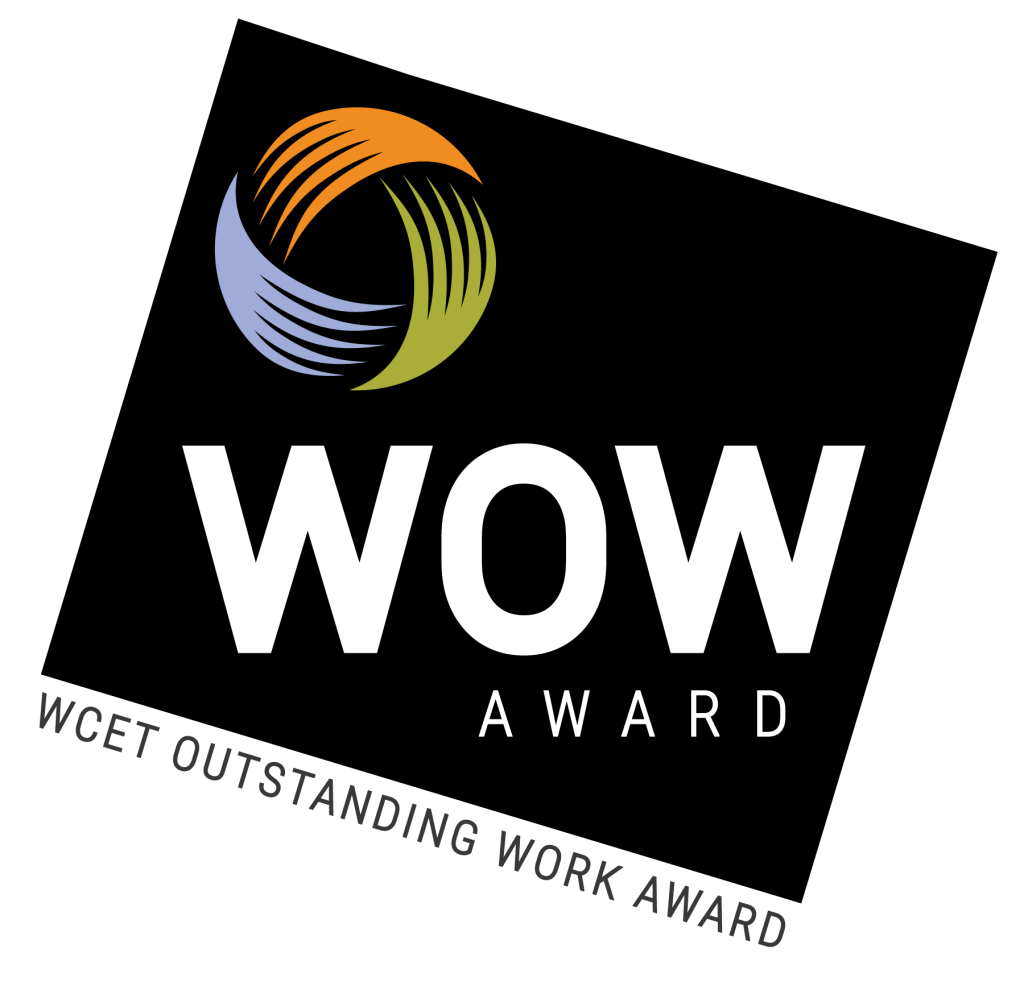20 Years of WOW: Celebrating Innovation in Digital Learning
Published by: WCET | 4/24/2025
Tags: Digital Learning, Distance Education, Managing Digital Learning, Online Learning, WCET, WOW Award
Published by: WCET | 4/24/2025
Tags: Digital Learning, Distance Education, Managing Digital Learning, Online Learning, WCET, WOW Award
The WCET Outstanding Work (WOW) Award honors exceptional initiatives by our WCET member institutions and organizations. We use the WOW Award program to showcase important and innovative projects from all over the US.
As we’ve celebrated just over two decades of WOW Award winners (whoa!), I wanted to take a moment to look back at the history of the projects. I had questions about how the challenges and innovations have changed over time. I identified three themes, reviewing all past recipients. These themes show that, while the specific challenges and technologies may evolve, the core focus of WOW Award-winning projects remains on driving innovation, fostering collaboration, and ensuring equity in digital learning.
In 2004, our then-Executive Director, Sally Johnstone, introduced the first annual WOW Awards: “We started this new award to recognize outstanding efforts in implementing technology in higher education.

Others can learn valuable lessons from these projects.” She also mentioned that WCET members are consistently on the cutting edge in using educational technologies.
The first four winners of the WOW Awards were:
Impressive initiatives, programs, and projects followed this first round of winners. While many of these innovations may feel commonplace today, it’s important to consider the context and time. These institutions often implemented emerging technologies well ahead of the curve. For example:
If I list any more of our exceptional awardees, this blog will get too long. Please visit our WOW webpages to learn more about these and all our outstanding WOW recipients.

Since 2004, members have submitted nominations showcasing how institutions and organizations use emerging technologies to solve specific problems or improve outcomes. These efforts have helped shape the evolution of digital learning: driving shifts in everything from course design and delivery to AI, data analytics, and personalized learning.
This theme highlights something important about our members – a viewpoint I am 100% on board with: WCET members have consistently used technology not just for the sake of it, but to creatively solve real, timely challenges for learners.
Yes, our community embraces fun and emerging tools, but that’s not the whole story.
What stands out is how our institutions and organizations focus on strategic innovations that shift how learning happens. No wonder we call these the WOW awards!
We’ve established that the nominated initiatives and our recipients are implementing great ideas. But through the history of the awards, the success of a project isn’t just because of a great idea – it’s because of the collaborative power behind it. We’ve given limited individual WOW awards to one person, and those were due to extenuating circumstances. Rarely are these initiatives a solo act. Through cross-campus collaboration, consortia, state-wide systems, and partnerships with vendors and other institutions, many WOW winners achieve scalability and sustainability by pooling resources and aligning goals across institutions or teams.
Some examples that come to mind:
Turns out, teamwork really does make the (digital learning) dream work.

These initiatives are designed to serve diverse learning populations better, meeting students where they are geographically and in life. During the COVID-19 pandemic, the nation saw firsthand how many students face significant challenges simply accessing quality education, let alone completing coursework from home.
In response, cities, counties, and states took steps to expand access to essential resources. I also believe that we, as a higher education community, have become more aware of how “real-life” circumstances affect students’ ability to learn. Many institutions now offer expanded support to help ensure students can focus on their education.
As these services have become more widely available, the conversation has shifted from access alone to meaningful access. When students are equipped with the right tools, support, and infrastructure, they no longer have to worry about just getting in the door. They can focus on learning—and they’re far more likely to thrive.

While it keeps me busy, I really enjoy heading up the WCET Awards Program. I get to learn about new things, collaborate with our members, and celebrate our member’s good work.
Looking back at the work recognized through the WOW awards over the years has been a pleasure. Our community is full of passionate educators and problem-solvers.
Now – it’s your turn.
The 2025 WOW Award nominations are open. I can’t wait to see what you’ve been working on. Help us continue to inspire, share, and celebrate the work moving digital learning in higher education forward. Nominate for a WOW Award now.